iPhone 16 Plus vs iPhone 15 Plus: Baby steps
We may earn a commission if you make a purchase from the links on this page.

Intro
Apple seems to be sticking to the iPhone Plus formula for yet another year, hence the presence of an iPhone 16 Plus model in the portfolio. The most logical question is: "How does the new phone stack against its predecessor." A comparison article sprouts out of this question, and you're currently reading it.
Today we're doing a comparison between the recently announced iPhone 16 Plus and last year's iPhone 15 Plus. These two models are very similar, as one might expect, and we're going to explore all the differences and similarities below. This includes dimensions, screen quality, battery life, camera system, raw hardware power, software features, and many more.
iPhone 16 Plus vs iPhone 15 Plus differences:
| iPhone 16 Plus | iPhone 15 Plus |
|---|---|
| More RAM (8GB) due to on-device AI requirements | 6GB of RAM |
| New capacitive Camera Control button, Action Button, vertical rear camera placement | No Camera Control button or Action Button, diagonal camera placement |
| Smaller battery (4,674 mAh) potentially resulting in shorter battery life | Larger battery (4,383 mAh) potentially delivering better battery life |
| New Apple A18 silicon inside (3nm) | Apple A16 Bionic chipset (5nm) |
Table of Contents:
Also read:
- iPhone 16 Plus vs iPhone 14 Plus: Is it time to upgrade?
- Apple iPhone 16 Plus Review: Is the Plus model still needed?
- The best iPhone to buy: our verdict
- iPhone 15 Pro Max vs iPhone 15 Plus
Design and Size
Camera design change
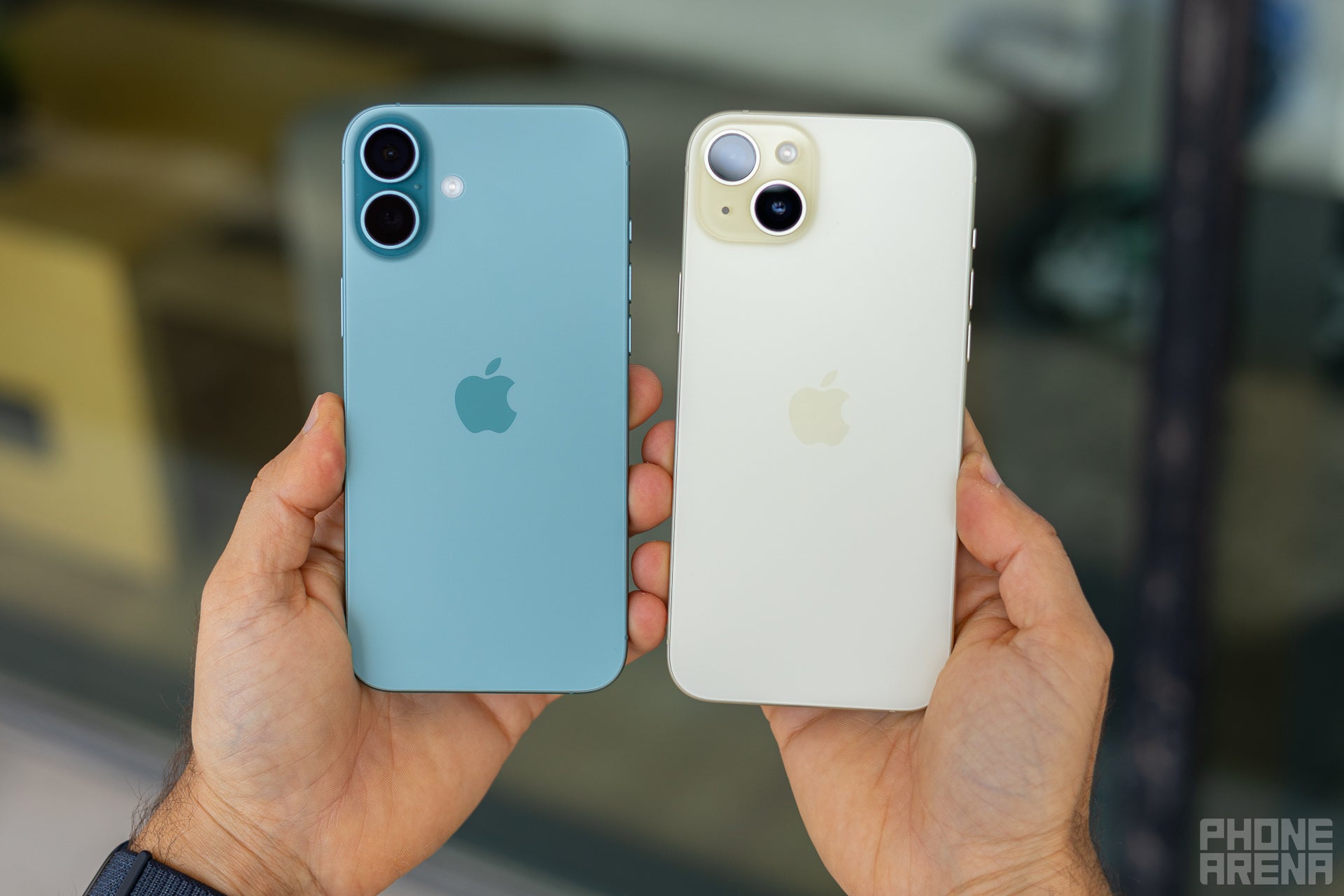
A slight tweak of the camera design on the back (Image by PhoneArena)
The iPhone 16 Plus and the iPhone 15 Plus sport the exact same 6.7-inch display with a pill-shaped camera cutout and Dynamic Island capabilities.
On the back, things look a bit different. The camera bump is different on the new model, it features a vertical design and bears some resemblance to the iPhone X camera, just with more substantial, beefier cameras in the vertical pill-shaped housing.
The iPhone 15 Plus, on the other hand, features the traditional square-ish camera design with diagonally-positioned main and ultrawide cameras.
The materials used in both phones are virtually identical, we have the same glass-aluminum sandwich as in the last couple of iPhone generations.
There's another design change in the newer model, and it concerns the button layout. The iPhone 16 Plus comes with an Action Button, and, another addition to the button party - a capacitive Camera Control button. The old model only has the mute switch, apart from the usual power button and volume.
Regarding the color scheme, you can check out the colors for the iPhone 16 Plus below, as well as all the available hues that you can buy the iPhone 15 Plus in.
iPhone 16 Plus available colors:
iPhone 15 Plus available colors:
On the back, things look a bit different. The camera bump is different on the new model, it features a vertical design and bears some resemblance to the iPhone X camera, just with more substantial, beefier cameras in the vertical pill-shaped housing.
The iPhone 15 Plus, on the other hand, features the traditional square-ish camera design with diagonally-positioned main and ultrawide cameras.
The materials used in both phones are virtually identical, we have the same glass-aluminum sandwich as in the last couple of iPhone generations.
There's another design change in the newer model, and it concerns the button layout. The iPhone 16 Plus comes with an Action Button, and, another addition to the button party - a capacitive Camera Control button. The old model only has the mute switch, apart from the usual power button and volume.
Regarding the color scheme, you can check out the colors for the iPhone 16 Plus below, as well as all the available hues that you can buy the iPhone 15 Plus in.
- Ultramarine
- Teal
- Pink
- White
- Black
iPhone 15 Plus available colors:
- Black
- Green
- Pink
- Yellow
- Blue
Display Differences
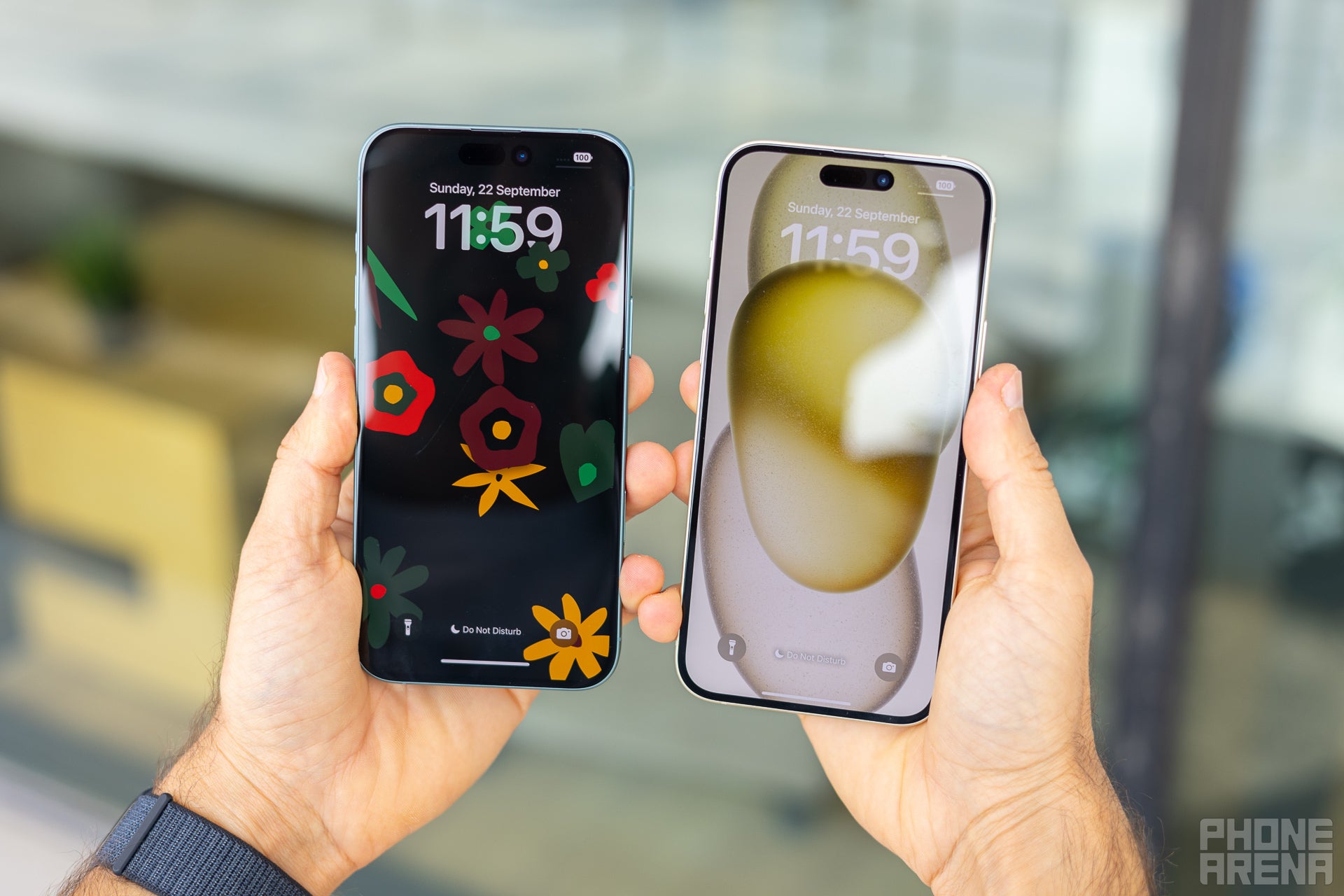
When will the 60Hz horror end? (Image by PhoneArena)
Well. If we want to go the short route here, we'd say, "There aren't any." The display of the iPhone 16 Plus is nearly identical to the one found in the iPhone 15 Plus. It's a 6.69-inch LTPS OLED with a 60Hz refresh rate (a real shame in 2024) and a resolution of 2796 x 1290 pixels. According to Apple, the brightness numbers have been tweaked and the Plus model now comes with the same minimum and maximum brightness figures as the Pro models, 2000 nits and 1 nit respectively.
Display Measurements:
Our display tests show that Apple indeed managed to make the iPhone 16 Plus go down to 1 nit of brightness but on the other side of the spectrum we don't find any improvement. The iPhone 15 Plus scored 1,090 nits of real-world brightness, while the new model managed 1,038 nits, which is objectively worse. For all intents and purposes these can be treated as identical panels, the differences are so minuscule that they might be due to fluctuations in the measuring process.
Performance and Software
A18 vs A16
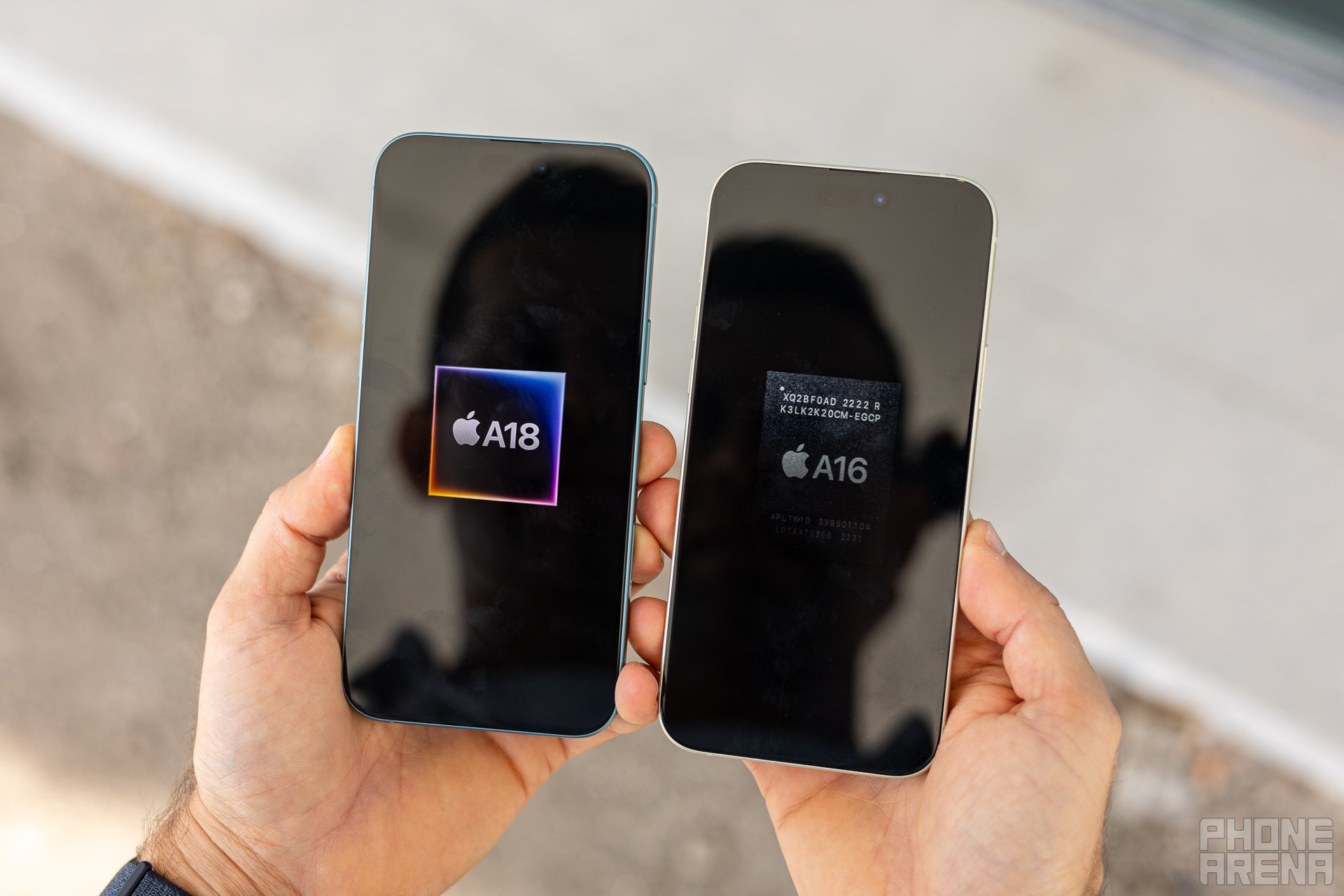
The new silicon is way more powerful, but will you notice the difference? (Image by PhoneArena)
The iPhone 16 Plus sports the new A18 chipset, manufactured using 3nm technology, which should contribute to power efficiency, and according to Apple it's 20% more efficient than the A17. The new model also comes with slightly more RAM onboard to cope with the higher demands of the on-device AI or Apple Intelligence, as the company calls it, hijacking the abbreviation.
That being said, the iPhone 15 Plus is no slouch with the older A16 chip and will do just fine with 6GB of RAM for your day-to-day phone activities. One area where the new chipset shines is, of course, synthetic benchmarks. If raw power is your thing, then there's no rivalry here, the iPhone 16 Plus is the clear winner. That being said, you won't notice any difference in day-to-day tasks, especially with the way Apple optimizes the apps for iOS for smooth experience independent of the hardware involved.
That being said, the iPhone 15 Plus is no slouch with the older A16 chip and will do just fine with 6GB of RAM for your day-to-day phone activities. One area where the new chipset shines is, of course, synthetic benchmarks. If raw power is your thing, then there's no rivalry here, the iPhone 16 Plus is the clear winner. That being said, you won't notice any difference in day-to-day tasks, especially with the way Apple optimizes the apps for iOS for smooth experience independent of the hardware involved.
Performance Benchmarks:
AI is the big buzz in software right now, and Apple’s latest updates look pretty exciting. At WWDC '24, the company revealed some impressive features coming with iOS 18 on the iPhone 16 series later this year.
Also read: iPhone 16 AI features: Here is what to look forward to
One of the big words is Apple Intelligence, which integrates with Photos to provide advanced editing tools right in the app. This could be a very useful feature for photo enthusiasts. Plus, the ability to lock apps with Face ID and hide them in a secure folder is a much-needed boost for privacy (new ways to hide Tinder from your spouse).
The home screen is also getting a major upgrade. Finally, Apple users can enjoy dark mode options for app icons and widgets, and even resize them and move them around with gaps! Android users have had these features for ages, so it's about time Apple caught up.
RCS messaging support is also coming our way with iOS 18 for smoother communication with Android devices and an updated Control Center for easier access to your most-used settings. And the addition of messaging via satellite is another fascinating step forward.
One of the big words is Apple Intelligence, which integrates with Photos to provide advanced editing tools right in the app. This could be a very useful feature for photo enthusiasts. Plus, the ability to lock apps with Face ID and hide them in a secure folder is a much-needed boost for privacy (new ways to hide Tinder from your spouse).
The home screen is also getting a major upgrade. Finally, Apple users can enjoy dark mode options for app icons and widgets, and even resize them and move them around with gaps! Android users have had these features for ages, so it's about time Apple caught up.
UPDATE: The iPhone 16 Plus and iPhone 15 Plus are now on iOS 18.2. This means that the 16 Plus has now gotten its second AI feature drop. In October, it got writing tools, a Photo Clean Up option (a.k.a. Magic Eraser), and streamlined notifications summarized by AI. Now, with iOS 18.2 in December, it got ChatGPT integration, Visual Intelligence, Image Playground, Genmoji, and Image Wand. And finally, keep an eye out for the upgraded, smarter Siri arriving with iOS 18.3 in March 2025. iPhone 15 Plus owners will not get access to any of these.
Camera
No hardware changes
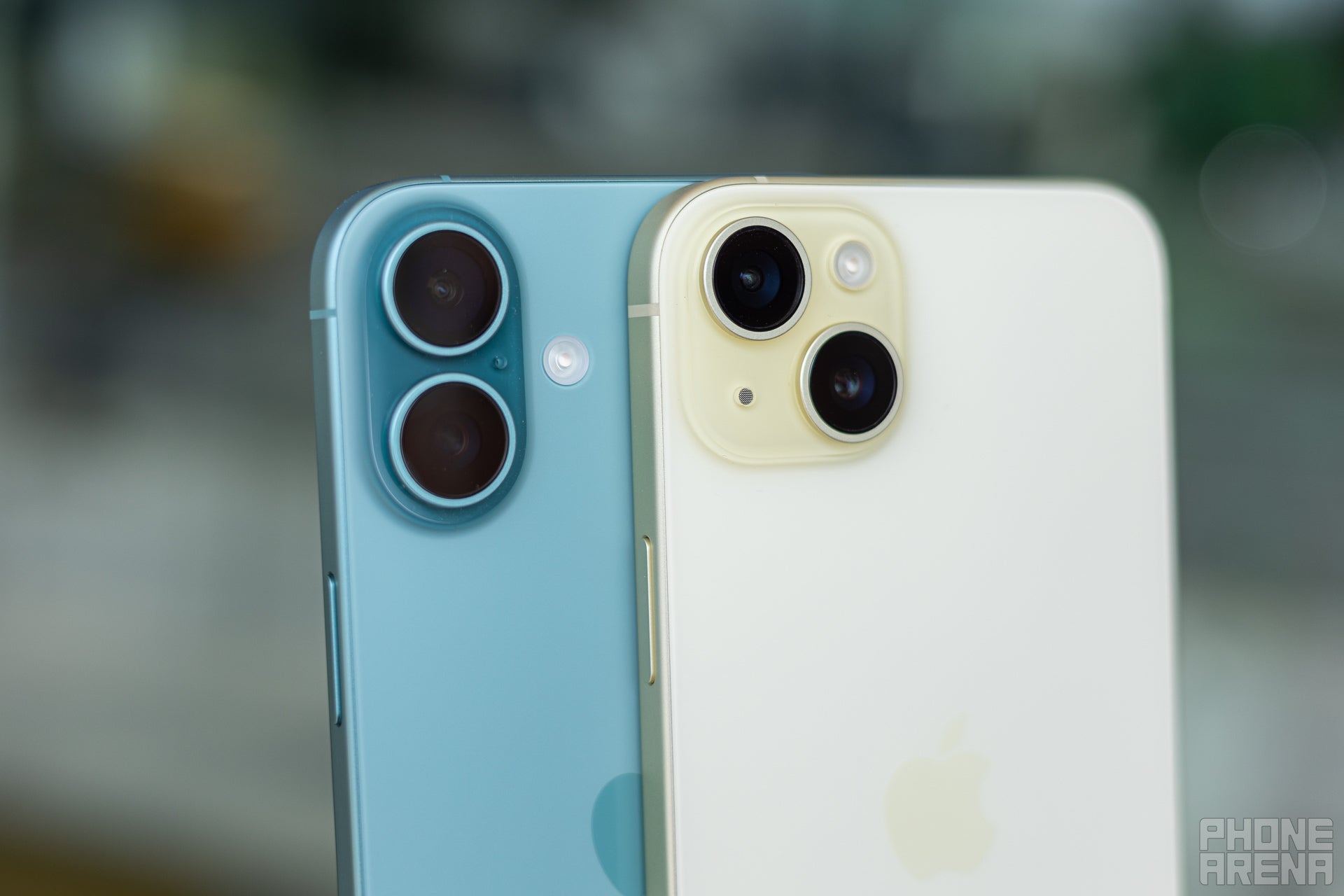
Rinse and repeat (Image by PhoneArena)
The iPhone 16 Plus retains the same camera system as its predecessor, namely a 48MP main camera coupled with a 12MP ultrawide. This might come as a disappointment to some, but it is what it is.
The change in camera positioning on the new model allows the iPhone 16 Plus to record spatial video in landscape mode, intended to be viewed on the Apple Vision Pro. Something to keep in mind if you're one of the lucky few with a Vision Pro headset.
The change in camera positioning on the new model allows the iPhone 16 Plus to record spatial video in landscape mode, intended to be viewed on the Apple Vision Pro. Something to keep in mind if you're one of the lucky few with a Vision Pro headset.
There's actually a slight hardware change when it comes to the ultrawide camera of the iPhone 16 Plus. The aperture of the new model is f/2.2, slightly faster than the f/2.4 we have on the previous model. We will need to snap some comparison samples to see how this change would affect image quality. Finally, there's a Pro feature on the iPhone 16 Plus camera, it can take close-up macro shots.
One hardware change that's coming to all four iPhone 16 models, iPhone 16 Plus included, is the new dedicated shutter button that Apple is calling Camera Control. This button is pressure sensitive and will offer double action focus/capture capabilities. The button is also capacitive, which means that you can use swipe gestures as a bonus to change various settings in the camera app.
The iPhone 15 Plus, on the other hand, don't have anything like it, and this is something that can't be distributed to an older model via a software patch. So, if you want hardware controls for your camera, the iPhone 16 Plus is the way to go here.
One hardware change that's coming to all four iPhone 16 models, iPhone 16 Plus included, is the new dedicated shutter button that Apple is calling Camera Control. This button is pressure sensitive and will offer double action focus/capture capabilities. The button is also capacitive, which means that you can use swipe gestures as a bonus to change various settings in the camera app.
PhoneArena Camera Score:
Main Camera
Unsurprisingly, the differences in quality are very very small when it comes to daylight samples from the main camera. Both phones capture a lot of detail with good dynamic range and exposure. There is a slight change in white balance on the iPhone 16 Plus, it tends to produce warmer pictures.
The same applies to low-light samples as well. The iPhone 16 Plus images turned out just a tad brighter than the ones we took with the iPhone 15 Plus but the difference is really small and could be down to the algorithms deciding to act differently. Overall, the quality is quite good, there's no excessive oversharpening or jumps in exposure, both phones handled the bright lights in the scene quite well.
Zoom Quality
There's no dedicated telephoto camera on neither of these, so they rely on crops from the main sensor. Here we can see a bit of a difference developing. The iPhone 16 Plus images are softer and smoother, again with a warmer tonality, while the iPhone 15 Plus sample looks sharper.
Ultra-wide Camera
The ultrawide samples also look a bit different, the one taken with the iPhone 16 Plus kind of reveals more details (take a look at the cloud in the upper left corner), while the iPhone 15 Plus image looks brighter but with less detail and dynamic range.
Selfies
Images from the front cameras of both phones follow the same trend as the samples from the other cameras, which goes to show how big of a role post-processing algorithms have nowadays. The image from the iPhone 16 Plus is better, though, with better exposure and details in it, while the one taken with the previous model overexposed the background to the point there are no fine details to be found.
Audio Quality and Haptics
The iPhone 15 Plus loudspeakers are just great - strong, detailed and they don't distort much at max volume. The same goes for the Taptic engine, a staple when it comes to vibration feedback. This might be down to the sheer size of the phone, but the result is great audio quality and strong and tight vibration.
When it comes to the iPhone 16 Plus, things remain more or less unchanged. We will compare these two back to back, but the way it stands right now, audio and haptics shouldn't be deciding factors if you trying to decide between these two.
Battery Life and Charging
Give me capacity!
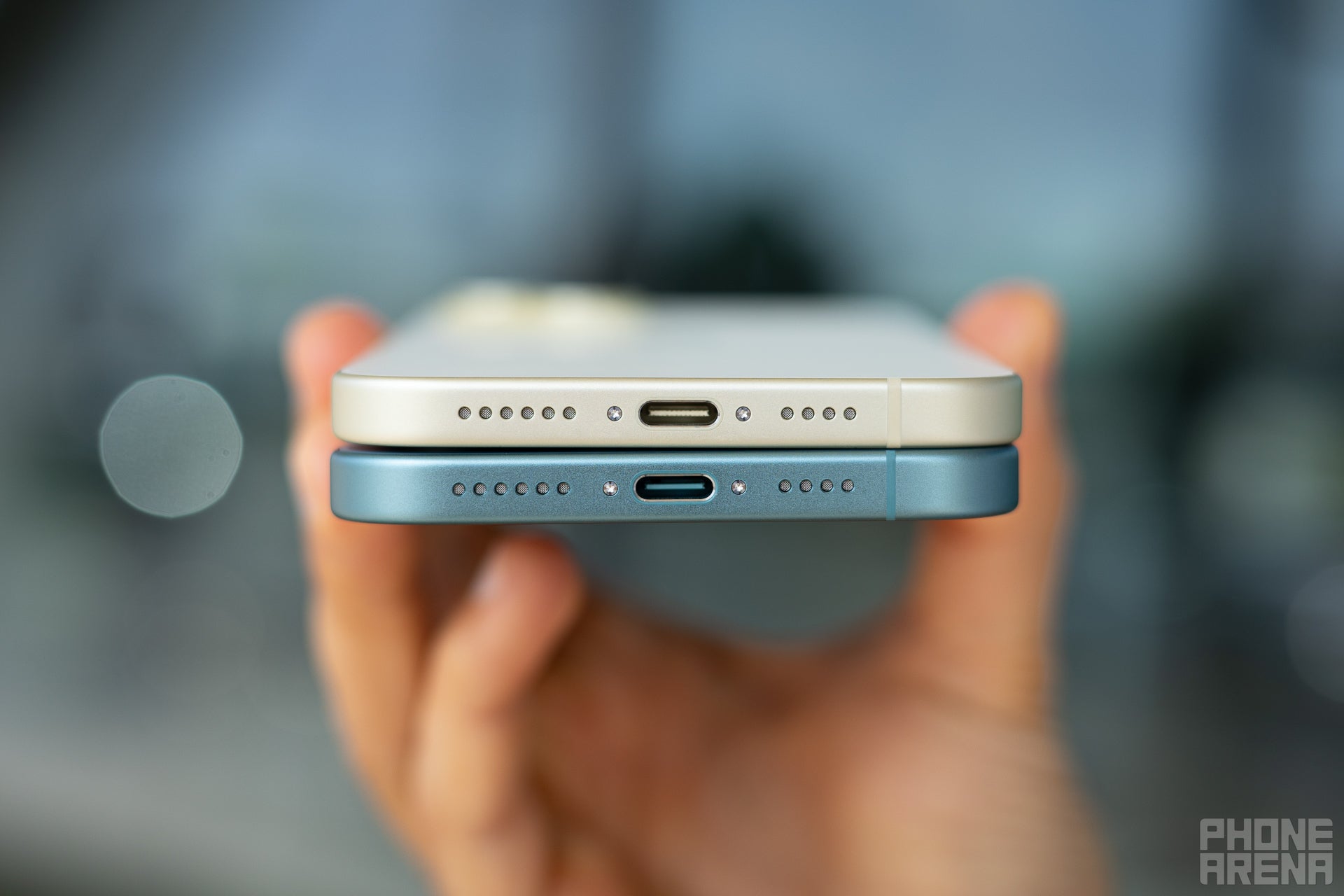
The iPhone 15 Plus comes with a relatively large 4,383 mAh battery (at least for the iPhone lineup), and as always, Apple didn't disclose the exact capacity of the new iPhone 16 Plus during the “It’s Glowtime” event. However, we got the usual teardowns soon after the event and we know the battery capacity of the new model is 4,674 mAh which is 6.6% more.
We expected the 300 mAh bump in capacity to result in a clear victory for the iPhone 16 Plus but this wasn't the case. The new model performs better in the web browsing test but loses in video streaming and gaming. Which is a bit strange.
We expected the 300 mAh bump in capacity to result in a clear victory for the iPhone 16 Plus but this wasn't the case. The new model performs better in the web browsing test but loses in video streaming and gaming. Which is a bit strange.
Battery Life Comparison:
The charging situation remains unchanged, which means that the iPhone 16 Plus comes with the same 26W max wired fast charging and MagSafe wireless charging as its predecessor. Apple cites 50% in 35 minutes, and we were able to confirm that. The 0 to 100% charging times are almost identical as well, so there's no clear winner in this section.
Specs Comparison
Here's a quick specs comparison. You can check out our full iPhone 16 Plus vs iPhone 15 Plus comparison on PhoneArena.
| iPhone 16 Plus | iPhone 15 Plus | |
|---|---|---|
| Size, weight | 160.9 x 77.8 x 7.8 mm, 199g | 160.9 x 77.8 x 7.8 mm, 201g |
| Screen | 6.7" OLED 60Hz | 6.7" OLED 60Hz |
| Processor | A18 3nm | A16 Bionic 5nm |
| RAM, Storage | 8/128GB 8/256GB 8/512GB LPDDR5 | 6/128GB 6/256GB 6/512GB LPDDR5 |
| Cameras | 48MP main 12MP ultra 12MP front | 48MP main 12MP ultra 12MP front |
| Battery | 4,674 mAh | 4,383 mAh |
| Charging | USB-C 26W wired MagSafe | USB-C 25W wired MagSafe |
Summary
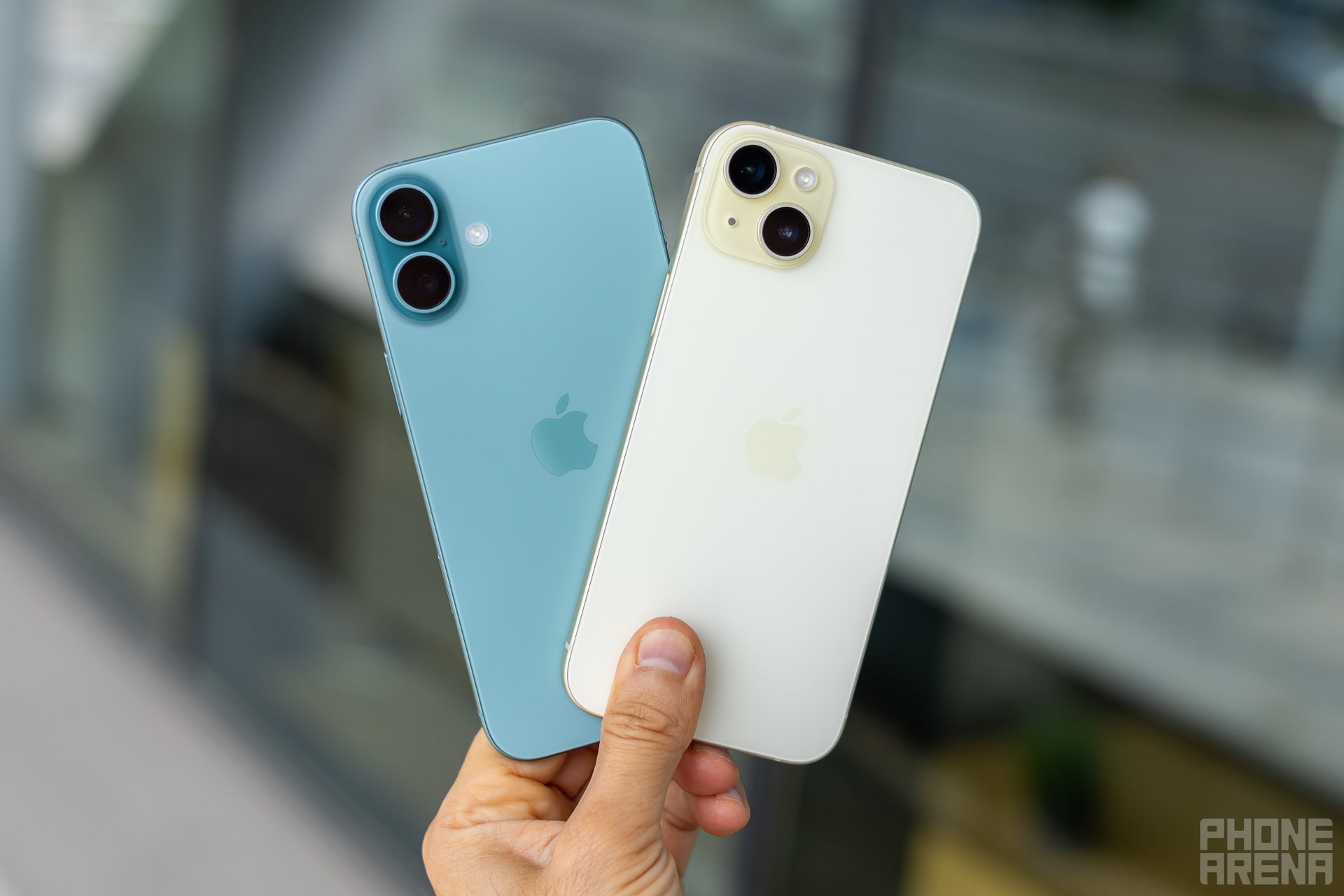
No need to upgrade but if you're coming from an older iPhone, get the 16 Plus (Image by PhoneArena)
Well, there you have it! There's not a huge difference between these two in terms of overall user experience. The camera systems are extremely similar, the battery and charging situation is also pretty close.
The biggest difference lies in the hardware and software - the newer iPhone 16 Plus relies on the A18 chipset and it's a beast compared to the A16 Bionic. There are some Apple intelligence tricks coming to the iPhone 16 series (potentially dripping down to the iPhone 15 as well), and the Camera Control button is present on the newer model as well.
If you already own the iPhone 15 Plus, we don't recommend upgrading right away. You can try this Camera Control button in a store or on a friend's iPhone 16 and decide if it's worth the upgrade, as we find it a bit fiddly.
If you're coming from an older iPhone, like the iPhone 14 Plus or even older, and you're deciding between these two, the clear winner is the new iPhone 16 Plus.
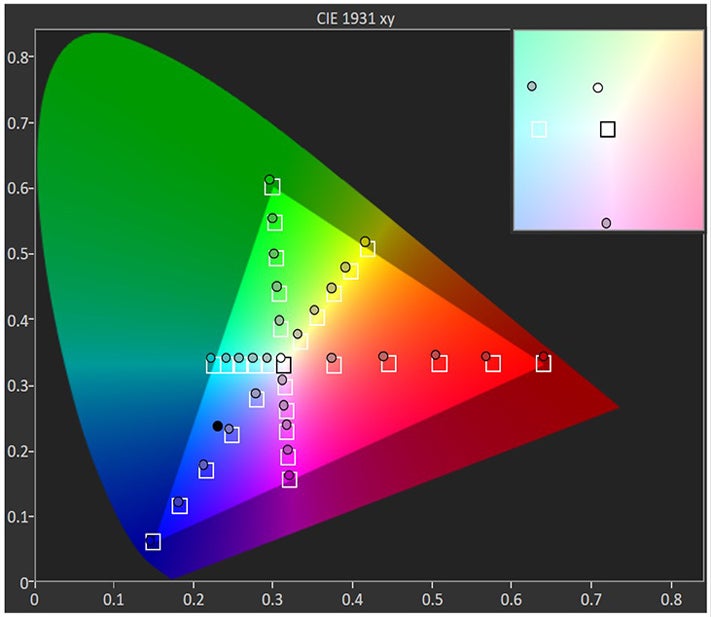
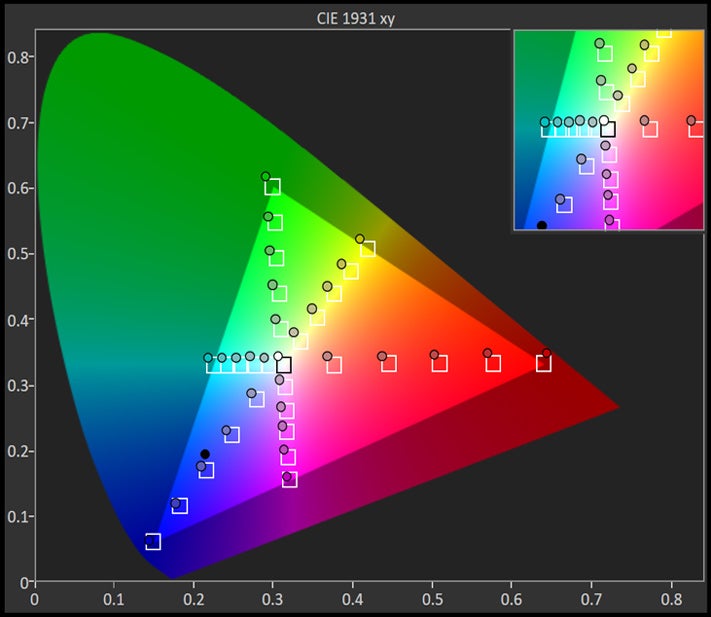
































Things that are NOT allowed: